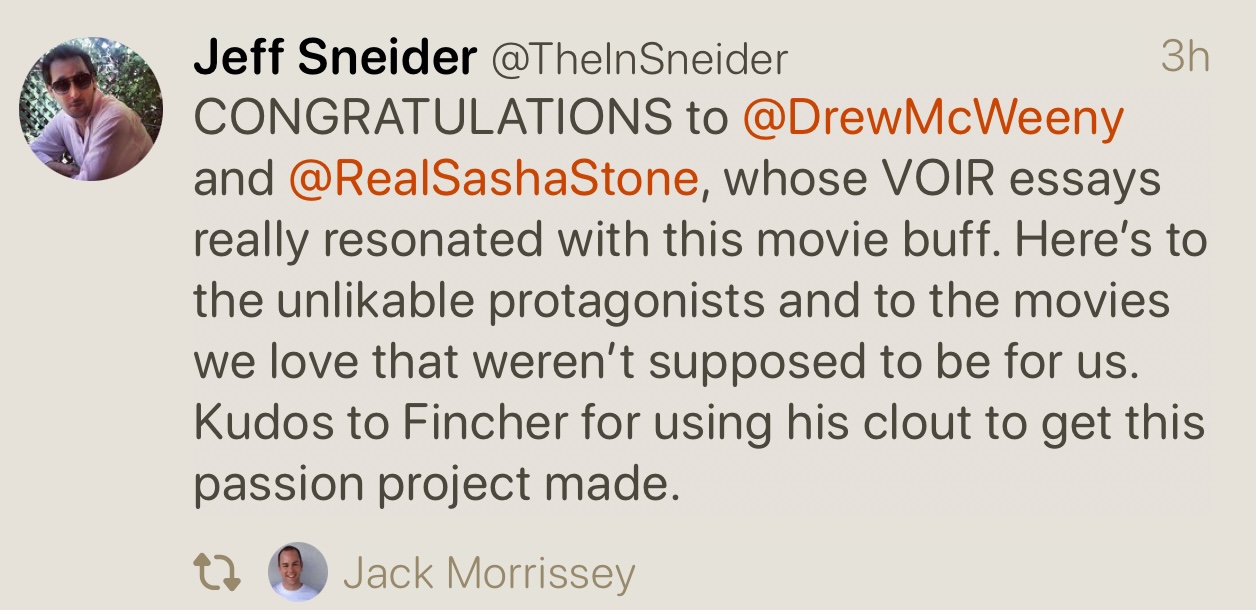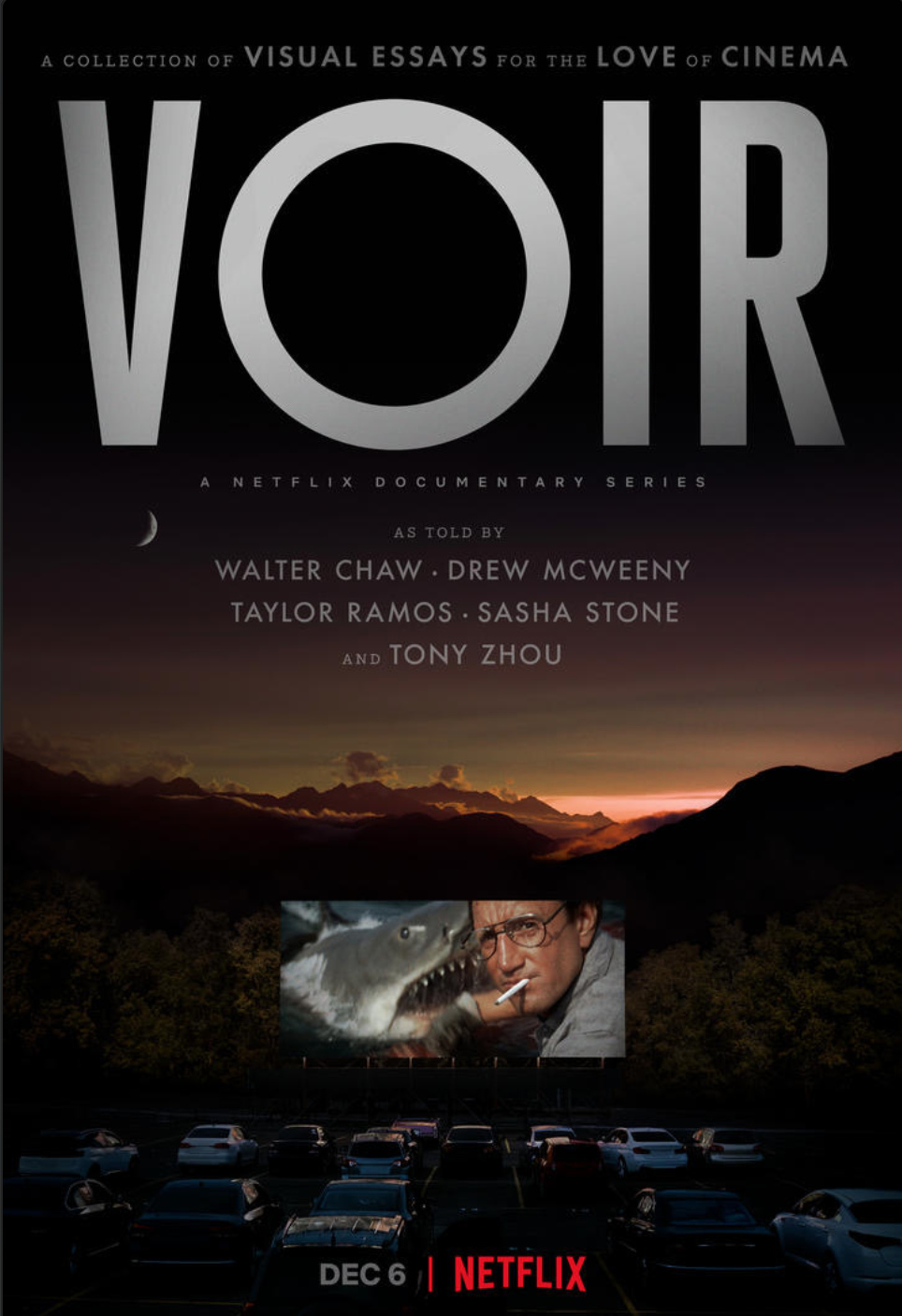David Fincher and David Prior‘s Voir (Netflix, currently streaming) is a collection of six essays about film worship. I’ve watched four and they’re all finely wrought, but I have to spit something out. Despite my long friendship with Sasha Stone I can’t not say what I know to be true, which is that her autobiographical piece — “Summer of the Shark” — is the most eloquent and well-produced of the lot.
It’s the only one that reaches out and says “this, once upon a time, was me” plus “this was all of us back in the fanciful, doobie-toke Gerald Ford era, and what an impressionable time it was.” It’s about what’s gone forever and will never come back, but in another sense about what’s lasted forever.
“Shark”‘ tells a modest but fascinating little saga about young Sasha (played as a ten-year-old by Eva Wilde, and as a 17 year-old by Shannon Hayes) and her sister Lisa sinking into the captivating vortex of Steven Spielberg‘s Jaws, and how that film lit a certain fascination and devotion in both of them, and in Sasha especially.

The essay paints a swoony, sun-dappled portrait of hippie-ish Topanga Canyon and San Fernando Valley teen culture in the ’70s…detailed, lulling and just as time-trippy as Licorice Pizza in this respect…and tells how Sasha and her sister came to worship the refuge and sanctum of movies in that era (partly for the Spielberg and Star Wars-ian coolness, partly to escape from the turmoil of their mom’s bad boyfriends), etc.
Prior (whose involvement was more hands-on than Fincher’s) does a killer job of blending Jaws beach footage with recreations of Sasha’s own beach time — he and dp Martim Vian even mimic that famous zoom in-track back shot of Roy Scheider.
All in all, “Summer of the Shark” is a great little short (only around 12 minutes…longer?). I’m very proud of Sasha for having written from her heart and narrated it just so and worked so hard for so long on this thing, and (with Fincher and Prior’s expert assistance) having given it just the right touch and spin.
Walter Chaw‘s “Profane and Profound”, a delicious take on Walter Hill‘s 48 HRS., and Drew McWeeny‘s “But I Don’t Like Him”, about unlikeable protagonists, are very fine essays also.
I didn’t care for Taylor Ramos and Tony Zhou‘s “The Ethics of Revenge”, a piece about Park Chan-wook‘s Lady Vengeance (’05) — it struck me as cold and creepy. And I haven’t watched “Film vs. Television,” although I hear it’s admirable.
Friendo: “Watching Voir….your pal Sasha’s episode was good…looks like they spent some money on that one recreating the ’70s. Then again Fincher doesn’t do anything cheap.”
Previously: “Some of our greatest cinema challenges us to really confront our own hearts in the safety of that darkened theatre. That’s part of the purpose of filmmaking.” — quote from Voir trailer.
2021 Reality Check: Movies stopped challenging or even slipping into the hearts of filmgoers with any regularity a long time ago. The only current movies that even flirt with this aesthetic are West Side Story, King Richard, Cyrano, Pig, A Hero and one or two others. Voir is therefore a nostalgia flick to a certain extent.
The dual purpose of 90% to 95% of movies is to (a) repeat and reenforce woke narratives and (b) enhance corporate revenue.













